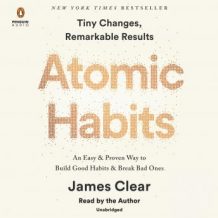White Kids: Growing Up with Privilege in a Racially Divided America Audiobook
White Kids: Growing Up with Privilege in a Racially Divided America Audiobook
- Tavia Gilbert
- Blackstone Audiobooks
- 2019-01-15
- 8 h 36 min
Summary:
Riveting stories of how affluent, white children find out about race
American kids are living in an environment of ongoing general public debates about race, daily displays of racial injustice, and for a few, an increased awareness surrounding diversity and inclusion. With this warmed framework, sociologist Margaret A. Hagerman zeroes in on affluent, white children to observe the way they make sense of privilege, unequal educational opportunities, and police violence. In fascinating details, Hagerman considers the role that about White Kids: Growing Up with Privilege inside a Racially Divided America they and their own families play in the duplication of racism and racial inequality in America.
White Kids, predicated on two years of research involving in-depth interviews with white children and their families, is definitely a clear-eyed and sometimes shocking accounts of how white kids learn about race. In doing this, this publication explores questions such as for example, ‘How do white kids learn about race if they grow up in families that do not chat openly about competition or acknowledge its influence?’ and ‘What about children developing up in families with parents who consider themselves to become ‘anti-racist’?’
Offering the actual voices of young, affluent white kids and what they consider race, racism, inequality, and privilege, White Kids illuminates how white racial socialization is a lot more dynamic, complex, and mixed than previously identified. It is an activity that exercises beyond white parents’ explicit interactions using their white kids and includes not only the choices parents make about neighborhoods, universities, peer groupings, extracurricular activities, and press, but also the choices made by the youngsters themselves. By interviewing children who are growing up in different racial contexts-from racially segregated to meaningfully integrated and from politically progressive to conservative-this essential reserve documents key variations in the outcomes of white racial socialization across family members. And by observing families within their everyday lives, this publication explores the extent to which white family members, even people that have anti-racist motives, reproduce and strengthen the types of inequality they state they reject.






